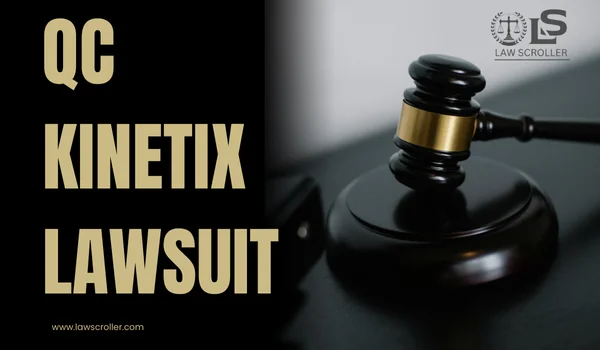Why This Lawsuit Matters for You
If you’ve ever looked into non-surgical treatments for joint pain—like those offered by QC Kinetix—this lawsuit might affect you. It raises questions about whether their treatments are effective and whether customers were misled into paying for costly services they didn’t fully understand.
Background: What’s Going On with QC Kinetix?

QC Kinetix is a franchise chain that offers regenerative treatments, such as stem cell and platelet-rich plasma (PRP) therapies, promising pain relief without surgery. But a class-action lawsuit, Robertson v. QC Franchise Group, claims:
- QC Kinetix and its franchisee pressured patients into expensive treatments—sometimes totaling $20,000, which they had to finance through partners like Med-Den Funding and Security First Bank.
- The marketing allegedly failed to disclose that these treatments are not FDA-approved, and patients weren’t informed of cancellation/refund rights.
- Lead plaintiff Dawn Robertson says she was urged to treat joints she didn’t have pain in, and saw negative side effects after starting treatment.
Who’s Affected: Could This Be You?
You might be impacted if you:
- Visited a QC Kinetix clinic (especially in Illinois) for joint or mobility issues.
- Were offered high-cost regenerative treatments without clear details about their FDA status.
- Used financing plans arranged at the clinic and weren’t informed of terms or cancellation rights.
Even if you paid a smaller amount or went to a different location, the suit may still be worth watching.
Timeline of Key Events
- November 16, 2023: Lawsuit filed — Robertson v. QC Franchise Group LLC, in federal court in Illinois.
- Early 2024–2025: Coverage and updates on misleading claims and patient experiences emerge.
- Mid 2025: Industry critics raise alarm over unproven treatments and franchise model risks.
- 2025 onward: Legal developments are pending—class certification, court rulings, or settlement talks.
What’s at Stake: Why It Matters
- Your health: People report worsening pain or side effects after treatments.
- Your wallet: Treatments can cost tens of thousands—and financing ties you to debt you may not have been warned about.
- Your rights: The lawsuit claims QC Kinetix failed to give proper disclosures—FDA status or loan cancellation info.
What to Watch Next
- Will the court certify the case as a class action? That determines whether many people can join.
- When might settlements or rulings happen? (Dates TBD in court filings.)
- If you received treatment, check your documents for terms, financing details, and disclaimers.
- Look for news updates—especially if your clinic is part of QC Kinetix’s network.
FAQs
Am I eligible to join the lawsuit?
If you had treatments at QC Kinetix, especially financed ones, and weren’t fully informed, you might be eligible. Check with a consumer rights attorney or follow class notices.
Do I need a lawyer?
It’s wise—especially if your case is joined with others in a class action. But initial consultations are often free.
What kind of compensation could you get?
Possibly money back for treatments, damages for misleading conduct, or changes to the company’s practices. Exact amounts aren’t yet known.
When will this be decided?
There’s no public date yet. Lawsuits like this can take months—or even years—for major decisions or settlements.
Is QC Kinetix still open for business?
Yes, but complaints have increased—including many with the BBB, where consumers cite broken promises and no diagnostics before treatment.
In a Nutshell
If you’ve ever considered—or already tried—QC Kinetix treatment, keep an eye on this case. It’s about more than one patient’s story; it raises broader safety and ethical concerns about emerging medical treatments.
This article is for information purposes only and not legal advice.

 Oliver Johnson is LawScroller’s Senior Legal Correspondent specializing in civil litigation, class actions, and consumer lawsuit coverage. He breaks down complex settlements and court decisions into clear, practical guidance for readers.
Oliver Johnson is LawScroller’s Senior Legal Correspondent specializing in civil litigation, class actions, and consumer lawsuit coverage. He breaks down complex settlements and court decisions into clear, practical guidance for readers.